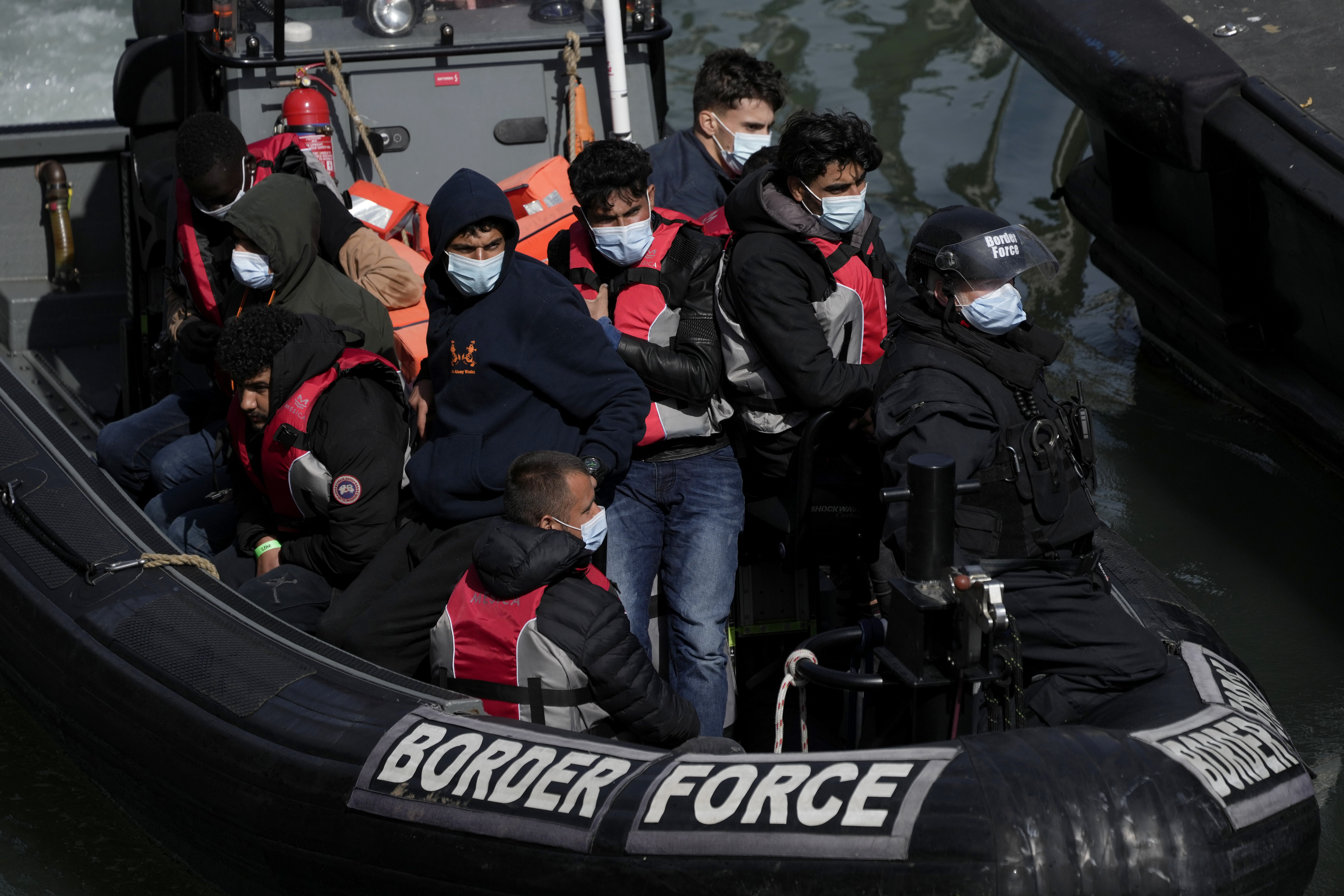The British government is currently spending £6.8 million (€7.84 million) a day on housing prospective asylum seekers and Afghan nationals in hotels across the country, the Home Affairs Select Committee learned on Wednesday.
Hearing testimony from Home Office staff and border chiefs, U.K. lawmakers sitting on the parliamentary committee were briefed that over 38,000 prospective asylum seekers had landed in Britain via the English Channel in 936 small boats so far this year, while a further 28,000 crossing attempts had been thwarted by French authorities.
The majority of those who arrived have been placed in hotel accommodation due to makeshift processing centers already reaching full capacity.
Abi Tierney, the director general for customer services at the Home Office, revealed the total cost to the British taxpayer for the hotel accommodation being block-booked for months in advance by the U.K. government is £5.6 million per day for Channel migrants, while a further £1.2 million per day is being spent on accommodating Afghan nationals evacuated from the country following the Taliban’s return to power last year. That is a total figure of £2.48 billion (€2.87 billion) per year.
When the committee chair Dame Diana Johnson asked Ms. Tierney whether that figure was “likely to go up,” the Home Office staffer replied: “Yes.”
It is likely to increase because many of those residing in hotels have been doing so for at least a year, with Ms. Tierney revealing that of the thousands of asylum seekers who arrived via the Channel last year, 96 percent are still awaiting a decision to their asylum request. Furthermore, of the 4 percent that have been processed, 85 percent of the claims have been successful.
The Home Office typically prioritizes claims whereby applicants are deemed vulnerable, and the triage of claims is not necessarily based on how long an applicant has resided in temporary accommodation.
The hotel accommodation is not only a costly measure but has had a knock-on effect with a number of weddings and celebratory occasions booked months in advance having been canceled by hotels who have taken up commercial contracts with the Home Office to block-book rooms intended for asylum seekers.
With more and more arrivals, a huge backlog in processing and an ever-rising bill to the taxpayers, the crisis is only deepening.
Clandestine Channel Threat Commander Dan O’Mahoney revealed that of the 38,000 people who have arrived via small boats onto British shores this year, 12,000 are Albanian nationals of which 10,000 are single, adult males.
[pp id=45136]
This figure shows an exponential rise in Albanian nationals arriving through irregular channels in Britain, O’Mahoney said.
“Two years ago, 50 Albanians arrived in the U.K. in small boats. Last year, it was 800,” he told the committee.
The rise has been exponential, and we think that is in the main due to the fact that Albanian criminal gangs have gained a foothold in the north of France and have begun facilitating very large numbers of migrants.
Clandestine Channel Threat Commander Dan O’MahoneyOverall, roughly 1-2 percent of the whole single male population of Albania has attempted to come to the U.K., O’Mahoney added.
Despite reiterated pledges by Conservative politicians to take back control of the English Channel, the world’s busiest shipping lane which now plays a pivotal role in Britain’s migration crisis, the number of arrivals has continued to rise sharply throughout this parliament.
[pp id=50532]
Current Home Secretary Suella Braverman told the Conservative party conference last month that it was “her dream” to see a plane full of asylum seekers be sent to deportation centers established by the Home Office in the African country of Rwanda, a keystone policy of Boris Johnson’s administration introduced by Braverman’s predecessor Priti Patel.
Shadow Home Secretary Yvette Cooper called last year’s processing figures for asylum seekers “shocking and irresponsible,” claiming it plays into the hands of criminal gangs and “leaves refugees without the support they need.”
It is so far unclear how Labour would handle the migration crisis on Britain’s southern shores in a more efficient manner, or how the party would tackle bogus claims, with its leader Sir Keir Starmer simply stating previously that a Labour government would implement an “immigration system based on compassion and dignity.”





